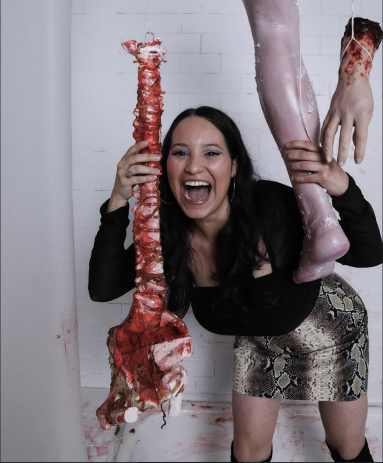The 10 Best Monologues in Horror Cinema, Ranked
“Howard… I hate you so much for leaving me here, sometimes I hope you die.” -Pearl
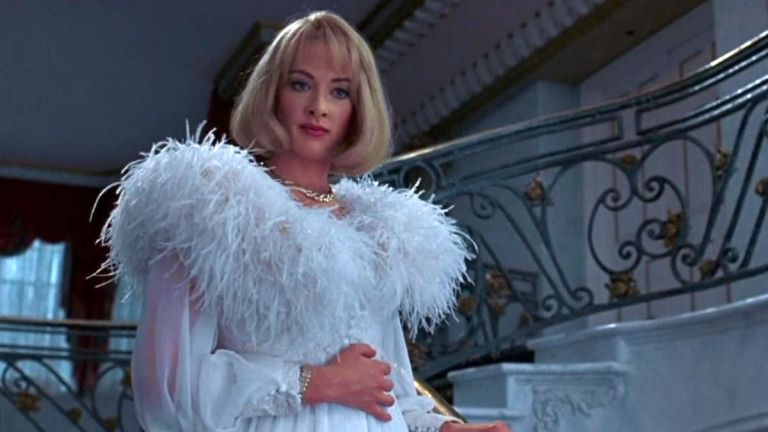
A monologue, when done properly, has the power to elevate a movie. A string of words can add layers to a character and depth to the story. A successful monologue requires not only great writing and smart directing, but a remarkable performance by the actor. It’s a feat many have taken on, but only the most brilliant have succeeded in accomplishing something masterful. Some notable examples include Quint’s (Robert Shaw) USS Indianapolis account in Jaws (1975), Amy Dunne’s (Rosamund Pike) iconic cool girl monologue in Gone Girl (2014), and the V for Vendetta (2005) speech.
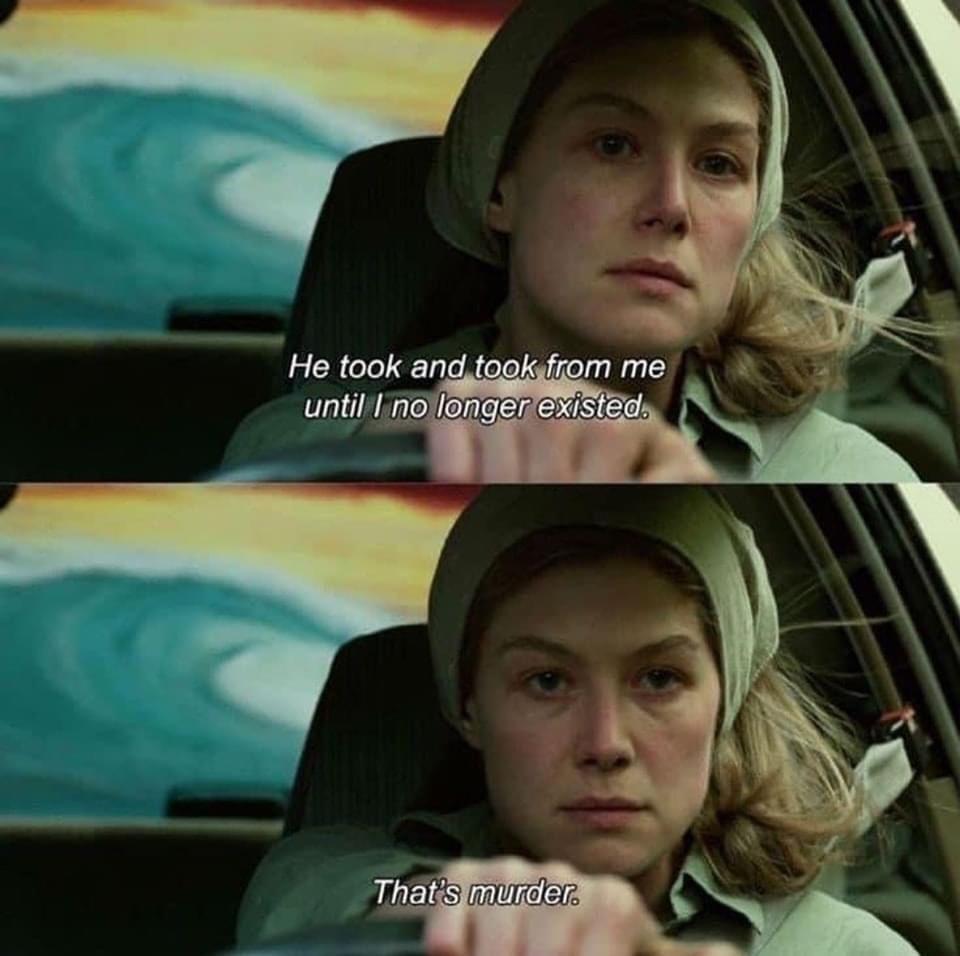
The talented writer-director Mike Flanagan understands the power of the monologue and has utilized it in his works to emotionally move and haunt his audience: Nell’s in The Haunting of Hill House, Jamie’s in The Haunting of Bly Manor, Roderick’s in The Fall of the House of Usher—and no one could ever forget Erin’s soliloquy about the nature of life and death at the end of Midnight Mass. Horror films, too, have utilized the monologue throughout the decades. In Halloween (1978), Donald Pleasance delivered an unnerving monologue as Dr. Samuel Loomis to perfection. It was because of it that the audience understood that Michael Myers (Nick Castle) lacks empathy, morality, and has no qualms about killing. He planted the seeds of psychological terror in the viewer.
The best monologues in horror convey far worse things that our eyes could ever see on screen. They’re emotionally impactful and play an important role in the film—these movies wouldn’t be what they are without them.
Cataloged below are the 10 best monologues in horror films, ranked.
10. Psycho (1960): “She Wouldn’t Even Harm a Fly”
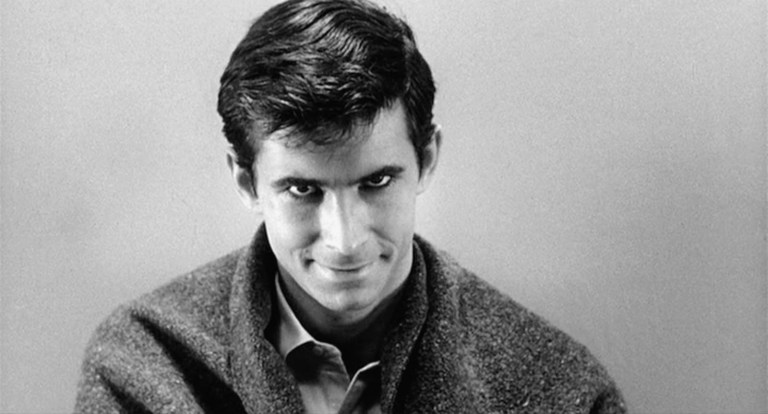
At the end of Psycho, Lila Crane (Vera Miles) and Sam Loomis (John Gavin) have evaded Norman Bates and survived to tell their story. Norman has been arrested and sits in a cell, his mind completely taken over by “Mother.” The camera zooms in on him as “Mother” delivers a speech that provides insight into just how broken Norman’s psyche is. Anthony Perkins sits almost still, with his facial expressions conveying everything. Not once does his face break. The words spoken all culminate in that final disturbing, knowing smile. “Mother” feels zero remorse. If she could kill again, she would. She’s cold, calculated, and clever. It’s utterly bone-chilling.
“They know I can’t move a finger, and I won’t. I’ll just sit here and be quiet, just in case they do suspect me. They’re probably watching me. Well, let them. Let them see what kind of a person I am. I’m not even going to swat that fly. I hope they are watching. They’ll see. They’ll see and they’ll know, and they’ll say, ‘Why, she wouldn’t even harm a fly.’”
9. The Silence of the Lambs (1991): Clarice Gets Profiled by Hannibal
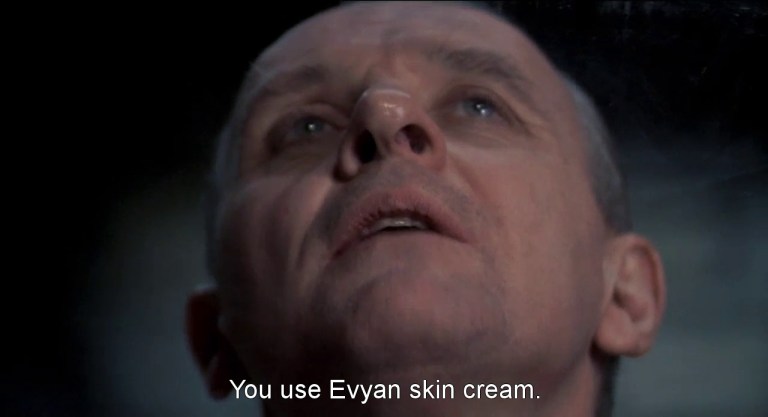
The horror it must be to walk into the same room as Hannibal Lecter and have your psyche dissected by him on the spot. He’d reflect back at you all those things you loathe about yourself and the ones that you’ve worked so hard to hide and forget. FBI trainee Clarice Starling (Jodie Foster) is sent by her boss to meet and probe Lecter in the hopes of getting insight into the serial killer “Buffalo Bill.” In one glance, he reads Clarice for filth, unnerving her with just his words and a pair of cold, blue eyes. He may be behind bars, but he’s still the one in command. Anthony Hopkins’ delivery as the former psychologist brutally analyzing who Clarice is versus the image she puts out to the world is chilling. He has spent mere minutes with her and already he can see right through muscle and bone to her core.
“And that accent you’ve tried so desperately to shed: pure West Virginia. What is your father, dear? Is he a coal miner? Does he stink of the lamp? You know how quickly the boys found you…all those tedious sticky fumblings in the back seats of cars…while you could only dream of getting out…getting anywhere…getting all the way to the FBI.” Her reaction garners his respect and admiration, and so one of the most compelling relationships in horror was born.
8. The Blair Witch Project (1999): “I’m So Sorry”
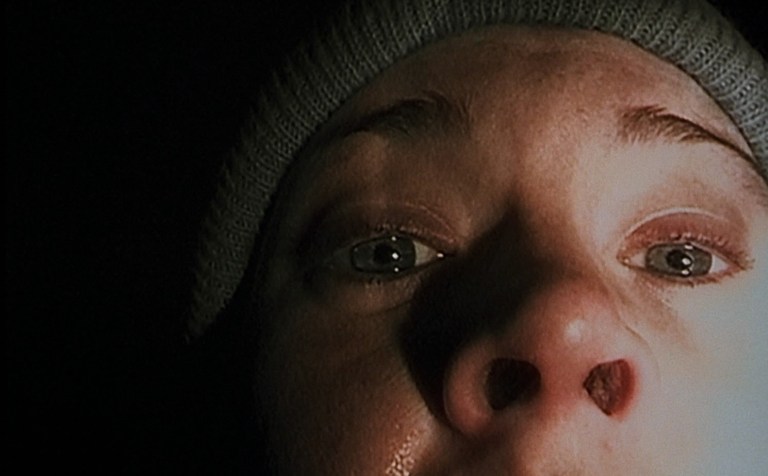
Heather Donahue brings terror to life in this monologue from The Blair Witch Project.
The fact that Heather Donahue won a Worst Actress Award for her performance in The Blair Witch project is utterly insane, and proves just how anti-art the awards are—they’re not great at picking what’s bad either. The Blair Witch Project is the crème de la crème of found footage horror films—a revolutionary masterpiece of mythology and world-building. The featured performances are some of the most organic and realistic (here’s hoping the three actors finally get what is owed to them). Around the time of its release, their strong performances added to the uncertainty established among the public of whether the events in the movie were real or not. Heather’s phenomenal acting is largely to thank for the film working. Her “I’m so sorry” monologue is the most gripping and effectively chilling scene in the subgenre to date. It cemented her as an icon. To this day, her conveyal of fear and emotion makes you forget that the notion of “true story” was just a marketing campaign.
Heather speaks directly to the camera she’s holding—close-up, only the upper half of her face visible. She tearfully apologizes to Mike’s mom, Josh’s mom, her mom, their friends and family. Putting the blame on herself, the tears won’t stop streaming down her face, the snot dripping from her nose. She has accepted that she’s not ever leaving those woods, “I’m going to die out here.” Her terror is visceral.
7. American Psycho (2000): Patrick’s Morning Routine
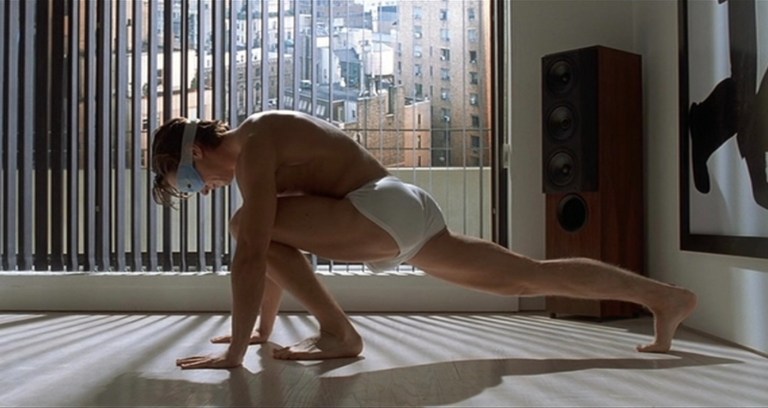
American Psycho perfectly encapsulates the existential horror of capitalism, excess, privilege, and consumption in the 80s, and because nothing has changed in the last four decades, the film resonates now as much as ever. The film wastes no time in introducing us to Patrick Bateman, or letting us know who he is — or lack thereof — at his core. Christian Bale superbly plays the psychopath devoid of any feelings and empathy. The viewer is talked through his morning routine in extreme detail. He describes his workout and shower regimen, then he goes into his skincare maintenance. What starts off normal and rather inconsequential, soon gets unnerving, and culminates in a foreboding and unsettling confession. It explains the senseless “nightly bloodlust” that we’re presented to later.
Patrick tells us who he is from the beginning: someone who isn’t real—a figment of people’s imagination. He is a vessel of inhumanity made of flesh. “There is an idea of a Patrick Bateman. Some kind of abstraction. But there is no real me. Only an entity. Something illusory. And though I can hide my cold gaze, and you can shake my hand and feel flesh gripping yours, and maybe you can even sense our lifestyles are probably comparable, I simply am not there.”
6. Night of the Living Dead (1968): Ben Recounts His Escape From the Ghouls
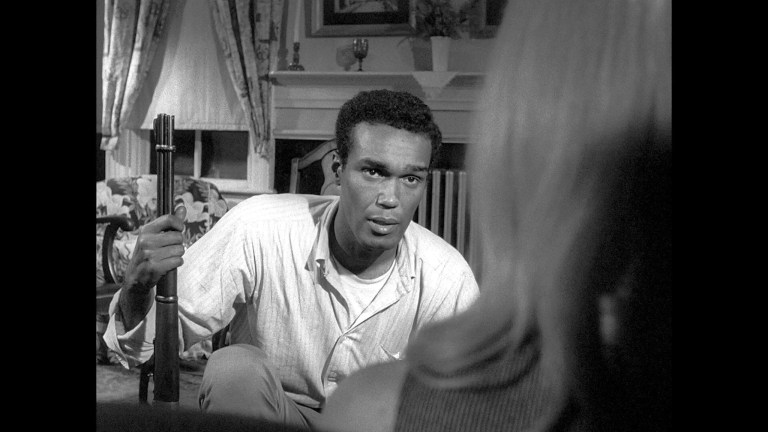
The ghouls that appear in George A. Romero’s horror classic are credited for popularizing the modern portrayal of zombies in horror. Although the film never uses the term “zombie,” it’s one of the greatest zombie movies ever created—arguably, the best. The film wouldn’t have had the impact it did had it not been for the brilliant Duane Jones, who made history as the first Black lead in horror cinema. His character Ben endured so much to keep himself and others alive. There’s a scene where he delivers an unsettling monologue prolonged through chilling moments of silence that work to captivate the viewer even more. His words act as a warning of the terror that awaits them. As he begins to secure the group’s shelter, he tells Barbra (Judith O’Dea) an eerie account about his escape from a number of ghouls before arriving at the house. He talks about witnessing them going after a truck, which caused a fire.
“I can still hear the man…screaming. These things, just backing away from it. I looked back at the diner to see if there was anyone there who could help me. That’s when I noticed that the entire place had been encircled. There wasn’t a sign of life left.” He was alone, “with fifty or sixty of those things just standing there” staring at him. His story is as bleak and terrifying as what we watch play out on screen.
5. Us (2019): Red Speaks for the First Time, Classroom Scene
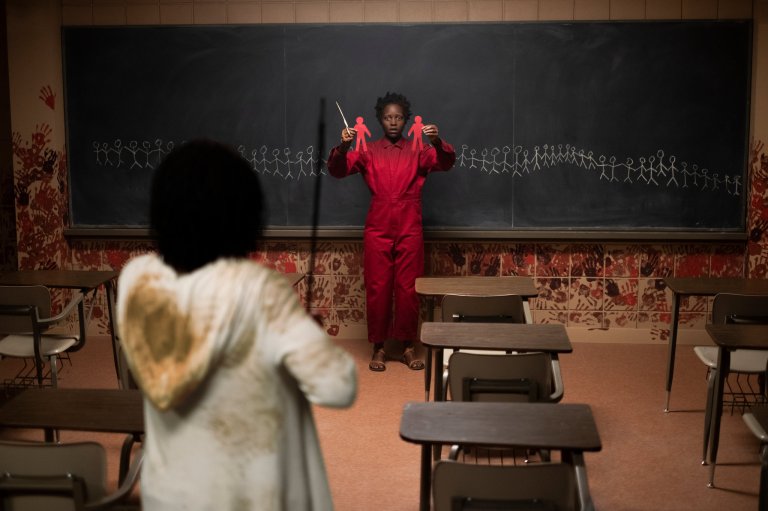
Lupita Nyong’o delivered not one, but two mesmerizing and unnerving monologues in Jordan Peele’s Us—when Red speaks for the first time and in the classroom scene right before Adelaide and Red’s final confrontation. In the former, Red’s blood-curdling voice tells a dark, disturbing tale about a girl who grew up living a beautiful happy life, unlike her shadow who lived a miserable unfulfilling existence. “When the girl ate, her food was given to her…warm and tasty. But when the shadow was hungry, she had to eat rabbit…raw and bloody.” She talks about the men in their lives, the girl’s a prince and her shadow’s—well, it didn’t matter if she didn’t love him at all. The captive Wilson family sits blank-stared, petrified in silence, unable to move a single muscle as Red continues on with the fairytale-like story that draws a parallel to real life social disparity, privilege, and oppression. Her words are utterly haunting. During the classroom scene, she monologues the origins of the Tethered and reveals her plans for revenge. Her desire for revenge isn’t just for Adelaide, but to break the whole system.
“It’s our time now. Our time up there. And to think, if it weren’t for you…I never would’ve danced at all.” The academic setting is purposeful—a place in which all can gain knowledge, better themselves, and pursue “the American dream.” As Red speaks, flashbacks show what happened that night Adelaide got lost and how the Tethered live underground. It’s one of the most chilling moments in the film. It isn’t until the final scene that we understand the one huge detail Red hinted at but didn’t directly recount—the one Adelaide has repressed her whole life.
4. Addams Family Values (1993): Debbie’s Big Scene
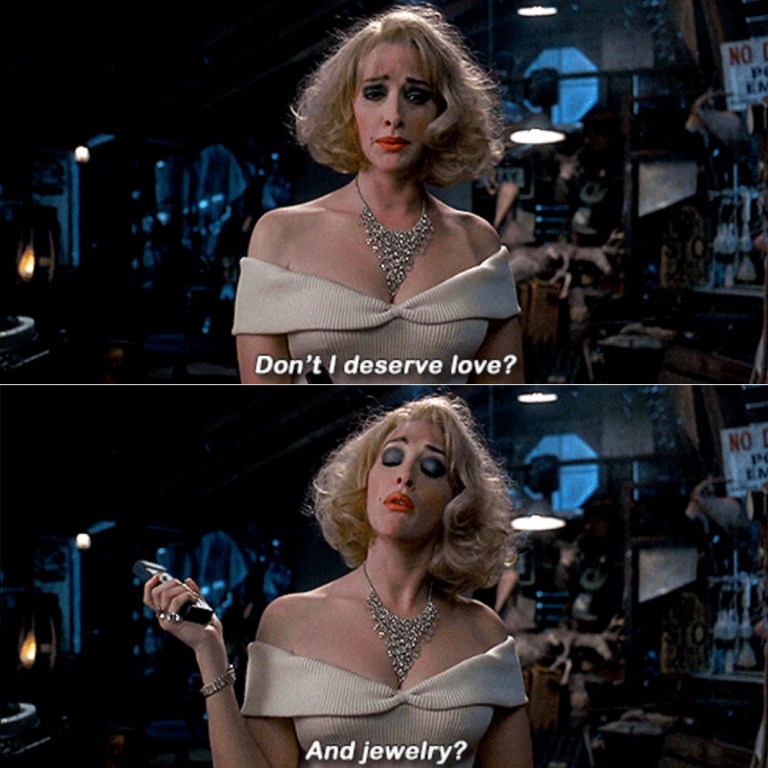
The talented and criminally underrated Joan Cusack dominates any role she plays. Other than Sheila in Shameless, her role as Debbie Jellinsky, otherwise known as The Black Widow, is one of her most memorable. She’s one beautiful, calculated, scheming, manipulative, unscrupulous, murderous, psychopathic woman—and the audience can’t help but be enamored with her. After she straps the Addamses in electric chairs (minus Pubert) at gunpoint, which is very much welcomed torture to the odd bunch, she’s actually admired by her captives. Spilling the story of her life, with visual slides and all the works, she receives some surprising words of tenderness throughout from her in-laws. All she ever wanted was a Ballerina Barbie “in her pretty pink tutu,” but her parents got her a Malibu Barbie instead. The horror!—or as Morticia and Gomez point out, “The nightmare. The nerve.” She details how she had to kill her first husband, the surgeon, who never paid her any attention because he was too busy saving lives.
Debbie continues, “Husband number two. The Senator. He loved his state. He loved his country. Sorry Debbie. No Mercedes this year. We have to set an example. Oh, yeah. Set this! My latest husband. My late husband Fester, the corpse, and his adorable family. You took me in. You accepted me. But did any of you love me? Really love me? So, I killed. So, I maimed. So, I destroyed one innocent life after another. Aren’t I a human being? Don’t I yearn and ache? And shop? Don’t I deserve love…and jewelry?” Completely commanding the screen with both emotion and humor, she has the viewer as captivated as her hostages.
3. Resurrection (2022): Maggie’s Tour-de-Force 7-Minute Monologue
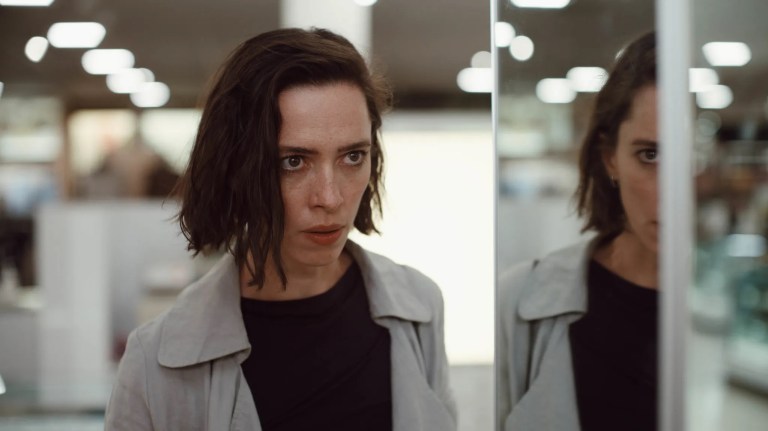
About 37 minutes into Resurrection, Rebecca Hall delivered a one-take 7-minute monologue that left audiences as stunned as Maggie’s intern. In horrific detail, Maggie describes to her intern Gwyn (Angela Wong Carbone) how David (Tim Roth), a much older man, groomed her when she was only 18. David charmed her parents and inserted himself into their everyday lives. He made Maggie feel special, seen, and heard. He called her his inspiration and muse. “All I knew is that, for the first time, I felt important and appreciated,” she tells Gwyn. “So I didn’t object when he started asking me to do things. ‘Kindnesses,’ he called them,” she continues. She describes subjugations, indignities, humiliations, and mutilations she’d subject herself to in order to prove her love for David—leaving the house without shoes, fasting, quitting her passion of drawing, holding poses for long periods of time, burning cigarettes on her skin. The background falls into darkness around her, the camera never leaves her, as she goes on to explain how David killed their baby and claimed to have eaten him.
It’s so unsettling to watch the imbalance of power dynamics as she unloads on her intern. What’s more disturbing is how the scene illustrates that the wounds David inflicted on Maggie’s psyche have controlled her life since. She has carried her trauma for twenty years. Her carefully constructed life is a symptom of that trauma. She rebuilt her life to place herself in control of every aspect, instead of allowing herself to process what she went through. David never stopped having any of the power. It’s a struggle all too many victims of abuse can relate to.
2. Hereditary (2018), “I’m Your Mother”
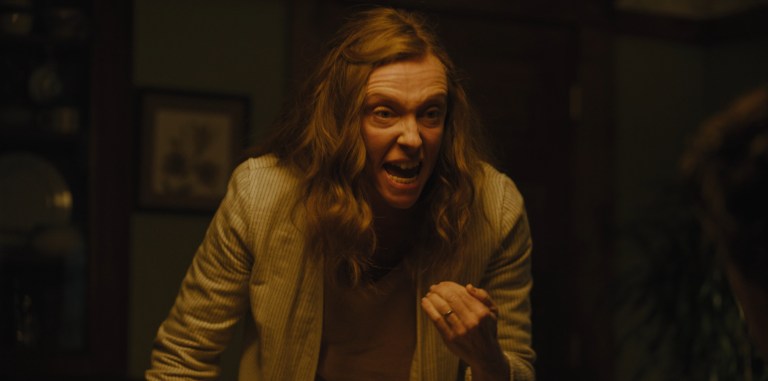
Hereditary has quite a few scenes that are forever ingrained into the memory of fans—Charlie’s (Milly Shapiro) decapitation, Steve (Gabriel Byrne) bursting into flames, Peter (Alex Wolff) breaking his own nose. No one can ever forget Toni Collete unleashing one of the strongest and most passionate performances in the genre when she delivered that explosive “I’m your mother” monologue. Never has a dinner table been so uncomfortable and tense. The unbearable pain of losing her daughter and her struggle not to blame her son for her accidental death is incredibly visceral. Peter pushes his mother to stop bottling her emotions up and to “just say it.” Her character Annie doesn’t hold anything back. The audience can feel her energy through the screen. For a moment it feels as though it’s us she’s releasing her rage, grief, and disappointment on.
She unloads her fury and heartache until she says that one thing she knows she’s not supposed to say, “if you could’ve just said ‘I’m sorry’ or faced up to what happened, maybe then we could do something with this, but you can’t take responsibility for anything! So now I can’t accept and I can’t forgive because…because nobody admits anything they’ve done!” Annie claims not to fault Peter, but in that moment of painful, brutal honesty it’s clear that she does.
See also: Toni Collette Finally Addressed Her Oscar Snub for Hereditary
1. Pearl (2022): The Confession
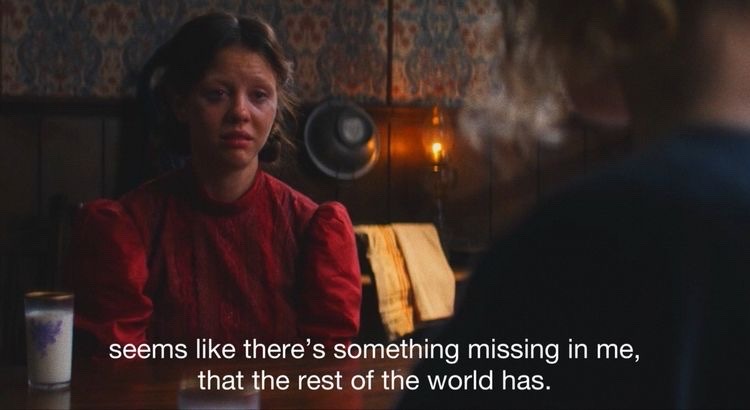
Pearl should have won Mia Goth an Academy Award for her monologue alone. In those 8 minutes, she single handedly delivered one of the most riveting moments in cinema. Only Goth could command the screen with such power that it draws sympathy from the audience for a murderous psychopath. With the camera solely focused on her tear-stained face, her one-take confession manages to be both chilling and poignant. Arguably, it touches more on the heart than it unsettles. The speech is one of the most emotionally moving scenes in horror. Pearl exposes her disturbing behavior—hurting animals, killing the projectionist, murdering her own mother and father—yet remains completely relatable. Her whole life, she’s just been waiting for it to start. All she ever wanted was to be seen and to be loved—to be somebody. Her mother constantly called her weak and made her feel like a failure—it broke her when she couldn’t prove her wrong. The viewer feels terrified of her, yes, but they also feel sorry for her. Her inner rage was made understandable.
While life is so easy for others, Pearl has always had to try her best to appear normal and get by. Her desires have never mattered, not even to her husband. Howard gave her false hope for a better life. He, someone who has only ever known privilege, chained her to the farm she always wanted to escape. The realization that there was never going to be anything more to her life drove her to such a hopeless place of despair. She had no option but to convince herself that it wasn’t about what she wanted anymore, but making the best of what she had.
Further reading:
